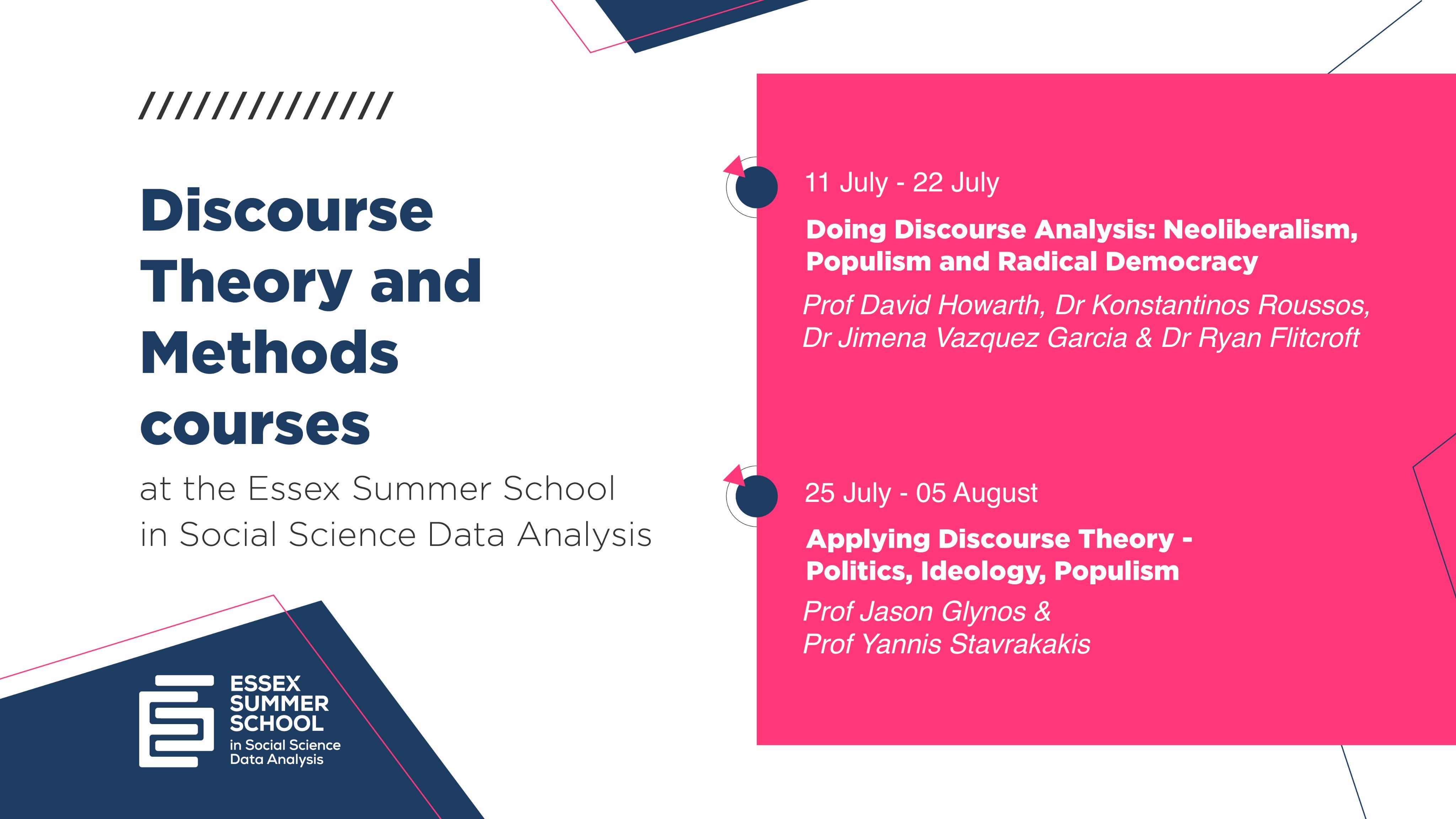University of Essex
Wivenhoe Park
Colchester
CO4 3SQ
United Kingdom

1Q Doing Discourse Analysis: Populism, Neoliberalism and Radical Democratic Politics
Prof. David Howarth, Dr. Konstantinos Roussos, Dr. Jimena Vazquez Garcia, and Dr. Ryan Flitcroft
2 week course / 35 hours (Please note: This course will be taught online only. In person study is not available for this course)
A central claim of discourse theory is that meaning, subjectivity, and agency are constructed within relational structures that are shaped and re-shaped through political struggle. This course introduces the basic concepts of poststructuralist discourse theory, understood as a distinctive, qualitative approach to critical empirical research. The course situates this approach in relation to competing approaches to social and political analysis that take discourse and meaning seriously, and contextualises it also in relation to key debates in the philosophy of natural and social science.
The main aim of the course, however, is to address the challenging question of ‘applying’ discourse theory to empirical phenomena in the name of understanding, explanation, and critique. Drawing inspiration from poststructuralism and psychoanalysis, it serves as a forum to discuss research strategies that are consonant with the field of discourse theory, and outlines conceptual frameworks that can be employed in the analysis of concrete discourses and practices.
A range of concepts and themes are examined with particular reference to the work of thinkers such as Ernesto Laclau, Chantal Mouffe, Judith Butler, Antonio Gramsci, Wendy Brown, Michel Foucault, Jacques Derrida, and Slavoj Žižek. Such concepts and themes are considered from the point of view of methodology and research strategy, and include discourse and practice, hegemony and antagonism, politics and dislocation, performativity and subjectivity, fantasy and ideology, feminism and the commons, populism and radical democracy.